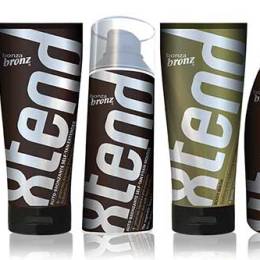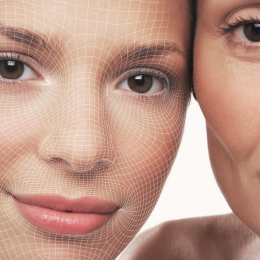Will this be a new wave of multi-disciplinary skin clinics?
Recognising the link between appearance and mental health, Sculpt, a skin-focused clinic based in Stepney, South Australia, has introduced an in-clinic counsellor to aid in achieving the best holistic results for their clientele.
This move acknowledges that appearance-based concerns can run deeper than the surface, affecting mental well-being. Amira Shahin (Eastside Counselling), qualified Counsellor with a speciality in Body Dysmorphic Disorder (BDD), collaborates closely with patients, fostering a safe space for healing and self-discovery.
What is interesting is that Amira specialises with a specific age group of patients, aiding in early prevention of negative thinking and unhealthy behaviours into late adulthood.
We spoke to Amira to find out more about her role within Sculpt.
What is your role within Sculpt as a counsellor?
In my role at Sculpt, I am committed to fostering a supportive community within the clinic by providing specialised mental health assessments and counselling tailored to a broad range of clients, from children to young adults (6-25 years old). My focus is on aiding individuals who are grappling with various mental health challenges, particularly Body Dysmorphic Disorder (BDD).
I employ an extensive array of evidence-based therapeutic techniques to help patients understand and manage the persistent and often disruptive thoughts that are characteristic of BDD.
Among these, Cognitive-Behavioural Therapy (CBT) is notably effective in addressing the distorted self-perceptions associated with the disorder.
By identifying and challenging these negative and distorted thought patterns, we work together to develop more adaptive and positive ways of thinking, enhancing mental resilience and wellbeing.
How does your scope assist in an aesthetic clinic?
As a Mental Health Counsellor at Sculpt, my pivotal role focuses on addressing the psychological aspects of body image within our aesthetically driven environment. A common issue among my patients is their fixation on perceived flaws—often obsessing over minor or imagined imperfections in their appearance.

Additionally, I explore the underlying motivations behind some patients’ decisions to undergo multiple cosmetic procedures, to determine whether these actions might be symptoms of deeper issues, such as Body Dysmorphic Disorder (BDD).
In collaboration with other practitioners at Sculpt, I help identify signs of distress related to body image issues. Patients exhibiting these signs are referred to me for further psychological assessment. Our team-oriented approach ensures that aesthetic treatments are thoughtfully aligned with each patient’s psychological state and overall mental health, integrating mental well-being into their overall treatment plans.
Therapeutically, I employ Cognitive-Behavioural Therapy (CBT) to assist patients in challenging destructive thoughts about their body image. I also teach mindfulness techniques and other effective coping strategies to alleviate appearance-related anxiety, fostering a healthier and more positive self-view.
What should skin clinics consider when it comes to psychology services if they are considering offering these in their own practice?
Skin clinics looking to incorporate psychological services into their practice need to address common patient concerns such as excessive preoccupation with appearance and acknowledge frequent psychological issues that arise from aesthetic treatments, including anxiety, Body Dysmorphic Disorder (BDD), and stress associated with chronic skin conditions.
Integrating a mental health clinician into your clinic is crucial. It is essential to select a professional who not only has a deep understanding of the interplay between psychology and aesthetics but also meshes well with your patient base.
A collaborative model should be established where aesthetic practitioners and mental health professionals work closely together. This model could involve joint consultations and regular team meetings to devise patient-centred care strategies, ensuring holistic treatment that considers both mental and physical health aspects.
Read the latest issue of SPA+CLINIC below:
There are 5 ways you can catch up with SPA+CLINIC
- Our quarterly print magazine, delivered to your door. Subscribe here.
- Our website, which is updated daily with its own completely unique content and breaking news.
- Our weekly newsletter – free to your inbox! Subscribe here.
- Our digital magazine – click here to view previous issues.
- Our social media – see daily updates on our Instagram, Facebook & Linkedin




